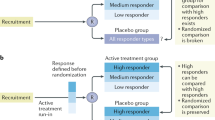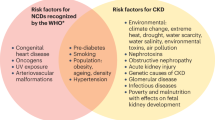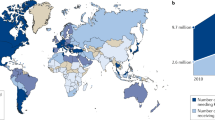Abstract
Kidney Disease: Improving Global Outcomes (KDIGO) is an independent organization with the mission to improve care and outcomes of patients with kidney disease worldwide through the development and coordination of clinical practice guidelines. KDIGO has established firm links with other organizations that have previously produced clinical practice guidelines in the field of kidney disease. The first three KDIGO guidelines—treatment of hepatitis C, management of bone and mineral disease, and care of kidney transplant recipients—have been finalized and the next three—acute kidney injury, management of glomerulonephritis, and management of blood pressure in chronic kidney disease—are under development. The ultimate goal is to cover most major aspects of care for patients with kidney disease. Corner stones of KDIGO's guideline development process are independent, multidisciplinary, international work groups, close collaboration with professional methodology experts who perform systematic evidence reviews, and open public review of each guideline. Grades of Recommendation Assessment, Development, and Evaluation (GRADE) methodology is applied for grading the quality of evidence and strength of recommendations. International conferences organized by KDIGO support the coordination of guideline development, assess the suitability of guideline topics and help to establish global consensus on definitions and policies.
Key Points
-
Kidney Disease: Improving Global Outcomes (KDIGO) is an independent not-for-profit organization
-
KDIGO coordinates and conducts the development of evidence-based clinical practice guidelines in the field of kidney disease
-
The KDIGO guidelines are developed by international, interdisciplinary work groups
-
KDIGO work groups collaborate with a professional evidence review team for a systematic review of published data in a specific topic area
-
KDIGO work groups use the Grades of Recommendation Assessment, Development, and Evaluation (GRADE) approach for grading the quality of the evidence and the strength of the recommendations
-
KDIGO guideline drafts are subjected to public review as an integral part of the process
This is a preview of subscription content, access via your institution
Access options
Subscribe to this journal
Receive 12 print issues and online access
$209.00 per year
only $17.42 per issue
Buy this article
- Purchase on Springer Link
- Instant access to full article PDF
Prices may be subject to local taxes which are calculated during checkout


Similar content being viewed by others
References
Kidney Disease: Improving Global Outcomes [online],
Field, M. J. & Lohr, K. N. (Eds) Committee to Advise the Public Health Service on Clinical Practice Guidelines, Institute of Medicine. Clinical practice guidelines: directions of a new program (National Academy Press, Washington D.C., 1990).
Sniderman, A. D. & Furberg, C. D. Why guideline-making requires reform. JAMA 301, 429–431 (2009).
Shaneyfelt, T. M. & Centor, R. M. Reassessment of clinical practice guidelines: Go gently into that good night. JAMA 301, 868–869 (2009).
NKF-DOQI clinical practice guidelines for hemodialysis adequacy. National Kidney Foundation. Am. J. Kidney Dis. 30 (3 Suppl. 2), S15–S66 (1997).
NKF-DOQI clinical practice guidelines for peritoneal dialysis adequacy. National Kidney Foundation. Am. J. Kidney Dis. 30 (3 Suppl. 2), S67–S136 (1997).
NKF-DOQI clinical practice guidelines for vascular access. National Kidney Foundation-Dialysis Outcomes Quality Initiative. Am. J. Kidney Dis. 30 (4 Suppl. 3), S150–S191 (1997).
NKF-DOQI clinical practice guidelines for the treatment of anemia of chronic renal failure. National Kidney Foundation-Dialysis Outcomes Quality Initiative. Am. J. Kidney Dis. 30 (4 Suppl. 3), S192–S240 (1997).
National Kidney Foundation. K/DOQI Clinical Practice Guidelines for Chronic Kidney Disease: Evaluation, Classification and Stratification. Am. J. Kidney Dis. 39 (2 Suppl. 1), S1–S266 (2002).
Barrett, B. J. et al. Clinical practice guidelines for the management of anemia coexistent with chronic renal failure. Canadian Society of Nephrology. J. Am. Soc. Nephrol. 10 (Suppl. 13), S292–S296 (1999).
European best practice guidelines for the management of anaemia in patients with chronic renal failure. Working Party for European Best Practice Guidelines for the Management of Anaemia in Patients with Chronic Renal Failure. Nephrol. Dial. Transplant. 14 (Suppl. 5), 1–50 (1999).
Caring for Australians with Renal Impairment (CARI) Anemia Guideline, 2000 http://www.cari.org.au/guidelines.php
IV. NFK-KDOQI Clinical Practice Guidelines for Anemia of Chronic Kidney Disease: update 2000. Am. J. Kidney Dis. 37 (1 Suppl. 1), S182–S238 (2001).
The Renal Association. Treatment of adults and children with renal failure [online], (2002).
Caring for Australians with Renal Impairment (CARI) Anemia Guideline, 2003. http://www.cari.org.au/guidelines.php
Gejyo, F. et al. 2004 Japanese Society for Dialysis Therapy guidelines for renal anemia in chronic hemodialysis patients. Ther. Apher. Dial. 8, 443–459 (2004).
Locatelli, F. et al. Revised European best practice guidelines for the management of anaemia in patients with chronic renal failure. Nephrol. Dial. Transplant. 19 (Suppl. 2), ii1–ii47 (2004).
KDOQI & National Kidney Foundation. Clinical practice guidelines and clinical practice recommendations for anemia in chronic kidney disease in adults. Am. J. Kidney Dis. 47 (5 Suppl. 3), S16–S85 (2006).
KDOQI. Clinical Practice Guideline and Clinical Practice Recommendations for anemia in chronic kidney disease: 2007 update of hemoglobin target. Am. J. Kidney Dis. 50, 471–530 (2007).
Manns, B. J. et al. Introduction to the Canadian Society of Nephrology clinical practice guidelines for the management of anemia associated with chronic kidney disease. Kidney Int. Suppl. 110, S1–S3 (2008).
Choudhry, N. K., Stelfox, H. T. & Detsky, A. S. Relationships between authors of clinical practice guidelines and the pharmaceutical industry. JAMA 287, 612–617 (2002).
Rothman, D. J. et al. Professional medical associations and their relationships with industry. JAMA 301, 1367–1372 (2009).
Hirsh, J. & Guyatt, G. Clinical experts or methodologists to write clinical guidelines? Lancet 374, 273–275 (2009).
Strippoli, G. F., Craig, J. C. & Schena, F. P. The number, quality, and coverage of randomized controlled trials in nephrology. J. Am. Soc. Nephrol. 15, 411–419 (2004).
Uhlig, K. et al. Grading evidence and recommendations for clinical practice guidelines in nephrology. A position statement from Kidney Disease: Improving Global Outcomes (KDIGO). Kidney Int. 70, 2058–2065 (2006).
Guyatt, G. et al. GRADE: an emerging consensus or rating quality of evidence and strengths of recommendations. BMJ 336, 924–926 (2008).
Guyatt, G. et al. What is the “quality of evidence” and why is it important to clinicians? BMJ 336, 995–998 (2008).
Guyatt, G. et al. Going from evidence to recommendations. BMJ 336, 1049–1051 (2008).
Kidney Disease: Improving Global Outcomes (KDIGO) CKD-MBD Work Group. KDIGO clinical practice guideline for the diagnosis, evaluation, prevention, and treatment of chronic kidney disease-mineral and bone disorder (CKD–MBD). Kidney Int. Suppl. S1–S130 (2009).
Kidney Disease: Improving Global Outcomes (KDIGO) Transplant Work Group. KDIGO clinical practice guideline for the care of kidney transplant recipients. Am. J. Transplant. (in press).
Moe, S. et al. Definition, evaluation, and classification of renal osteodystrophy: a position statement from Kidney Disease: Improving Global Outcomes (KDIGO). Kidney Int. 69, 1945–1953 (2006).
Abbud-Filho, M. et al. A report of the Lisbon Conference on the care of the kidney transplant recipient. Transplantation 83 (8 Suppl.), S1–S22 (2007).
Locatelli, F. et al. Clinical practice guidelines for anemia in chronic kidney disease: problems and solutions. A position statement from Kidney Disease: Improving Global Outcomes (KDIGO). Kidney Int. 74, 1237–1240 (2008).
Levey, A. S. et al. Definition and classification of chronic kidney disease: a position statement from Kidney Disease: Improving Global Outcomes (KDIGO). Kidney Int. 67, 2089–2100 (2005).
Levey, A. S. et al. Chronic kidney disease as a global public health problem: approaches and initiatives - a position statement from Kidney Disease Improving Global Outcomes. Kidney Int. 72, 247–259 (2007).
Eckardt, K.-U., Berns, J. S., Rocco, M. V. & Kasiske, B. L. Definition and classification of CKD: the debate should be about patient prognosis—a position statement from KDOQI and KDIGO. Am. J. Kidney Dis. 53, 915–920 (2009).
Zoccali, C. et al. European best practice quo vadis? From European Best Practice Guidelines (EBPG) to European Renal Best Practice (ERBP). Nephrol. Dial. Transpl. 23, 2162–2166 (2008).
Kidney Disease: Improving Global Outcomes (KDIGO) Hepatitis C Work Group. KDIGO clinical practice guidelines for the prevention, diagnosis, evaluation, and treatment of hepatitis C in chronic kidney disease. Kidney Int. Suppl. S1–S99 (2008).
ADAPTE [online],
Hurwitz, B. Legal and political considerations of clinical practice guidelines. BMJ 318, 661–664 (1999).
Acknowledgements
The authors are the current co-chairs of KDIGO. They gratefully acknowledge the tremendous support provided to KDIGO by many volunteers, the ground-laying efforts by KDIGO's founding co-chairs, Garabed Eknoyan and Norbert Lameire, the stimulating collaboration with the executive committee, the expertise and dedication of KDIGO staff and members of the evidence review teams, and the financial support of KDIGO's sponsors.
Author information
Authors and Affiliations
Corresponding author
Ethics declarations
Competing interests
K.-U. Eckardt and B. L. Kasiske are co-chairs of KDIGO.
Rights and permissions
About this article
Cite this article
Eckardt, KU., Kasiske, B. Kidney Disease: Improving Global Outcomes. Nat Rev Nephrol 5, 650–657 (2009). https://doi.org/10.1038/nrneph.2009.153
Published:
Issue Date:
DOI: https://doi.org/10.1038/nrneph.2009.153
This article is cited by
-
Automated machine learning for early prediction of acute kidney injury in acute pancreatitis
BMC Medical Informatics and Decision Making (2024)
-
Clinicopathological characteristics and outcomes of anti-neutrophil cytoplasmic autoantibody-related renal vasculitis with hyperuricemia: a retrospective case-control study
Scientific Reports (2021)
-
Association between furosemide administration and outcomes in critically ill patients with acute kidney injury
Critical Care (2020)
-
CKD 5D Asia—what is common and what is different from the West?
Renal Replacement Therapy (2018)
-
Process for developing rehabilitation practice recommendations for individuals with traumatic brain injury
BMC Neurology (2017)



